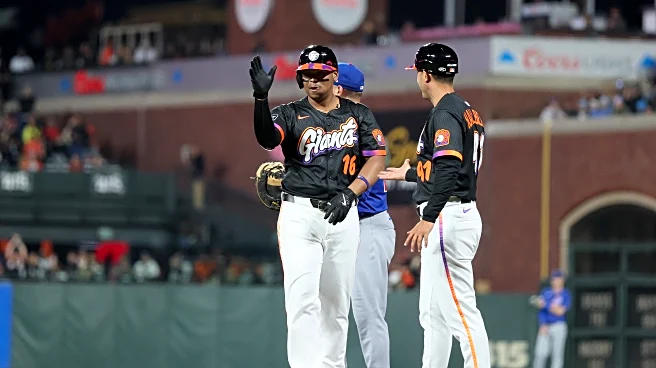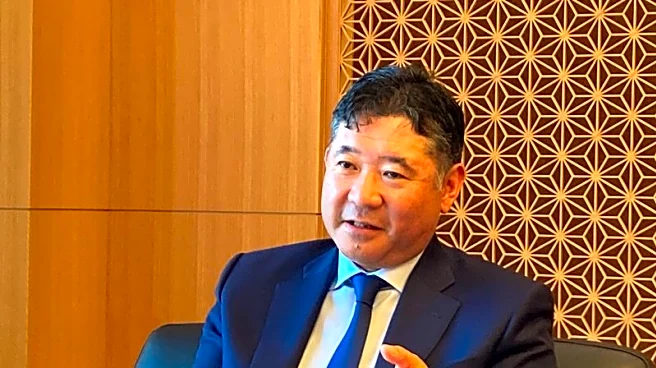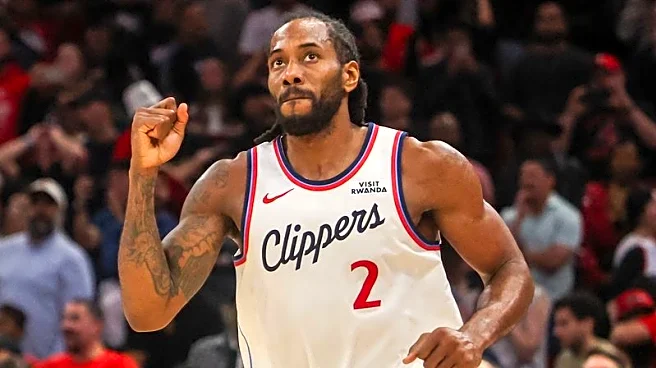When the sun rose on Tuesday morning and we all groggily crawled from our beds, the San Francisco Giants had a 0.4% chance of making the postseason, as gauged by the computers at Fangraphs HQ. And, after
beating the Chicago Cubs 5-2 after the sun had set, that number surely rose.
A little. From a tiny number to a still tiny number.
It’s not a number worth looking at. I checked the playoff odds solely for research purposes when writing the article you’re currently skimming while brushing your teeth, otherwise I wouldn’t have looked at it at all this month. If the playoff odds tab is open on your computer, close it. If you’re perusing the scoreboard to see how the National League Wild Card contenders did tonight, stop. If you don’t know who the National League Wild Card contenders are, keep it that way.
If the Giants rattle off five wins this week and surge above .500, then you can dare to dream. Until then, our focus is on 2026, not 2025. The team is trying to win in 2026, and if doing so allows them to stumble into some success in 2025 well, no one is going to argue with it.
But 2026 is the focus, and it’s evident in the day-to-day roster, even though it’s still comprised primarily of the players trying to win games when 2025 was the focus. There’s Luis Matos, starting in his fourth consecutive game for the first time since June, 2024, trying to prove that he can be the solution the team has been looking for in right field. There’s Drew Gilbert, playing in center field for the first time in his oh-so-short career, hoping to earn a spot as part of the outfield mix next year.
There’s Casey Schmitt, batting cleanup, trying to prove to the Giants that, for the second year running, they should assume they have an in-house solution to second base. There’s Heliot Ramos, trying to assuage the concerns about his defense before the winter begins; there’s Rafael Devers doing the same.
There’s Justin Verlander, using a second-half surge to make a case that perhaps he should be one of the starting arms that the Giants sign this offseason. There’s Wilmer Flores, maybe making enough memories in orange and black that he’ll eschew a chance to chase the dream elsewhere for another year or two, and instead join the coaching staff. There’s Ryan Walker, recovering from his early-season wobbles to state his case to once again open camp as the closer.
When people say that a team is turning their focus to the next year, there’s a tendency to think that means that the wins and losses happening before our eyes don’t matter. In reality, they’re tremendously important. The law of averages, misused as it may be in sports, tells us that as the sample size grows, it migrates closer and closer to reality. The Giants may not — almost surely will not — re-enter the postseason race this year, but if they finish with 85 wins we’ll justifiably carry more confidence into Spring Training than if they nab 81 wins, which would certainly be cause for far more optimism then if they settle for 76 wins.
The wins matter because the Giants are still, mostly, playing players who either will be a part of 2026, or have a chance to become a part of 2026.
And it matters that they look the part. The Giants have won three games in a row which, in and of itself, is hardly cause for celebration — even the useless Rockies have done that on four separate occasions this year. But it matters that they’ve secured those wins over the Cubs and Milwaukee Brewers, the two best teams in the National League. And it matters that they’ve looked the part along the way.
Isolate yourself from reality (an increasingly fun game to play these days), and you’ll find that Tuesday’s victory was reminiscent of the early-season series against the Philadelphia Phillies. There was a vibe, when watching that series, that it was heavyweight contender fight. The two teams seemed to bring out the best in each other, seeing each other’s good and trying to raise to great. There was a sense that they were bound for bigger games in a bigger series in a later month.
That feeling was, devoid of context, present in Milwaukee for all three games, even the loss. It didn’t feel like the Giants were playing the part of spoiler, but rather showing up to battle an equal. And that persisted into Tuesday’s series opener.
You watch a lot of baseball. I don’t need to explain to you that there are different types of wins. Some wins are the result of unsustainable heat. Others are the result of baseball just baseballing. There’s a reason that the Chicago White Sox, in setting an MLB record for futility a year ago, still manifested 41 occurrences of a hand-slapping, butt-smacking victory formation.
And then there are the wins where a team plays high-quality baseball, the type of which you can imagine them doing for months on end. The Giants haven’t had many of those wins lately. They’ve had three in a row now.
The tone was set immediately by Verlander, who needed just one pitch to record the first out of the game, and then made Kyle Tucker look more like a $5 man than a $500 million one with a nasty strikeout. It wasn’t an inning devoid of stress, but Verlander looked like the person in control even when he found himself in trouble, a matchup theme that persisted throughout the game.
He allowed back-to-back two-out singles in the first, but then struck out Carson Kelly. He again allowed a pair of two-out runners in the third, but then struck out Pete Crow-Armstrong. Trouble struck in the fourth when Ian Happ doubled with one out. Verlander walked a second batter on before allowing an RBI single, but that was all the damage in the inning, thanks in part to a spectacular catch by Schmitt.
Trouble struck again in the fifth when Ramos sold out for an attempted highlight catch to end the inning, which afforded Crow-Armstrong a double instead of a single, though even that required replay review after Ramos was initially credited with nabbing PCA at second on the recovery. He would score on a Kelly single, but that was all the damage in the inning.
After the Giants went ahead in the bottom of the fifth, and Verlander was staring down a chance for just his second win in the orange and black, he dug deep for his best bit of work in the sixth, setting down the side in order on just 12 pitches, allowing nasty movement to replace his dipping velocity.
The offense, meanwhile, looked ready to attack, offering a pleasant change of pace from what has transpired over the summer. Unbothered by an extremely Giantsian first inning (Ramos walked on four pitches to open the game, then Devers hit into a double play before Willy Adames struck out), they got to work in the second, when Flores smacked a ball over the wall for his 14th home run of the season, and a 1-0 lead.
But it was the fifth inning where they began to look the part, albeit once again dabbling with their Giants ways (derogatory). Matos, surging on a “you should’ve played me every day” heater, opened the inning with one of his more impressive swings of the season, turning on an 0-1 fastball to bang it high off the bricks for a leadoff opposite-field double against Matthew Boyd, a pitcher bound for Cy Young votes in a month.
Now, the Giantsy interlude: Patrick Bailey, with the broadcast booth imploring everyone that a productive out is the bare minimum in this situation, instead popped one up. Drew Gilbert put up a big fight, turning an 0-2 count into a 3-2 count, but chased ball four.
Up came Ramos who, for all his dip in defense and power, has seen an equal rise in timely hitting. He pounced on the first pitch he saw and roped a double into the corner, scoring Matos with ease.
A hit with runners in scoring position. A clutch knock to tie the game. Picking up a pair of teammates. You know … the stuff good teams do.
As anyone who has followed the narrative arc of the Giants season can attest to, good teams make their own luck and bad teams make their own misery and, one pitch later, Devers hit a soft pop-up — one of baseball’s most intimidating hitter goosing a ball at 62.4 mph.
It fell in no man’s land. And Ramos, who thankfully appears to have put his base-running foibles behind him, was running all the way with two outs, scoring the go-ahead run on a happy dose of partially-manufactured fortune.
But another tenet of good teams is varying the presents that they gift their closers, instead of handing them the same tired one-run lead night in and night out. Camilo Doval may have frustrated fans by creating his own torture, but it’s easy to do that when seemingly every baserunner you allow puts the tying run on base.
And so the Giants added on, with Flores drawing a one-out walk in the sixth, and Matt Chapman sending a baseball on a very lonely ride into the night, ending Boyd’s night, and making the Giants just the second team to score five runs against him this year.
Meanwhile, the bullpen protected the lead all the way to Walker, with Joey Lucchesi dominating the four batters he faced, and José Butto easily retiring both of his opponents. On came Walker, reprising the role he lost just a few months ago, and looking excellent as he did it, striking out the final two batters of the night while never letting the three-run lead feel in doubt.
They’re looking the part. It means nothing for this year. But it might mean something for next year.











